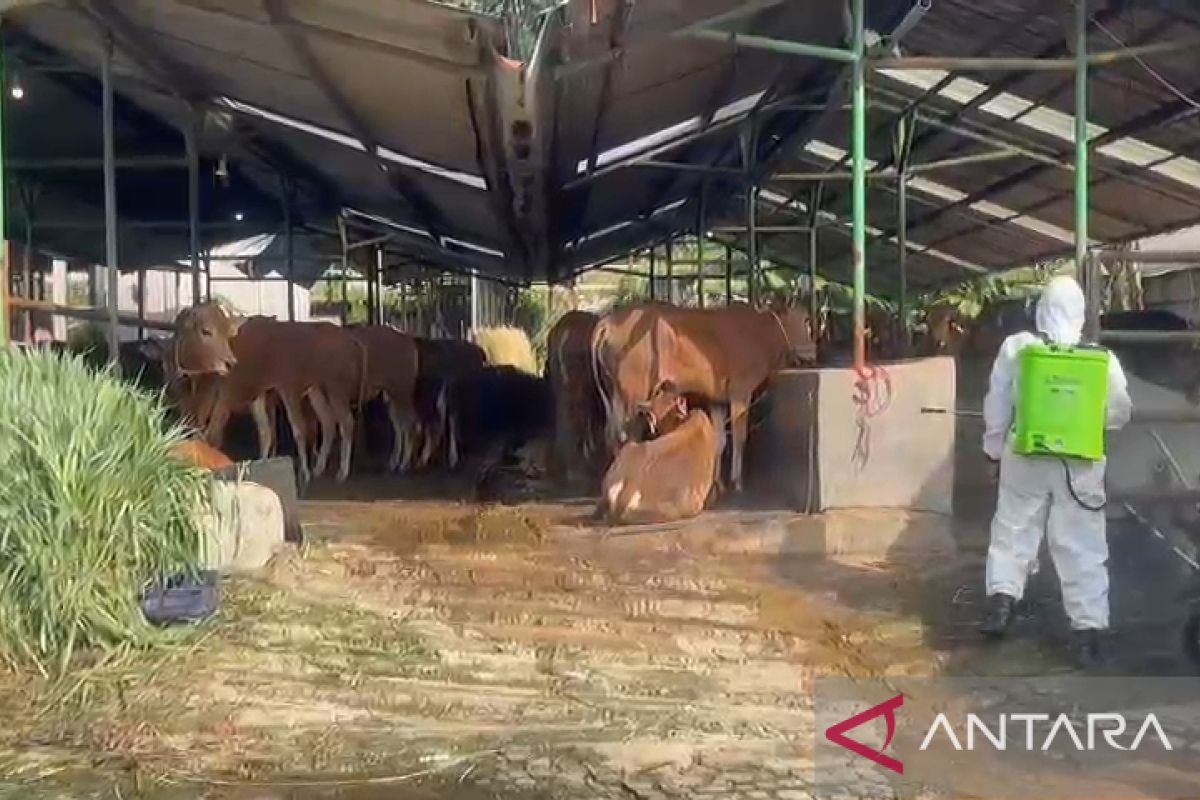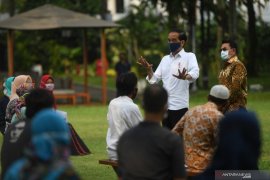The head of the integrated slaughterhouse technical implementation unit at Bogor Food and Agriculture Security Office, Didong Suherbi, stated that the increase in price was caused by the food and mouth disease outbreak. The issue had become a cause for concern for many, especially when Eid al-Adha was fast approaching.
He delivered the statement on Tuesday.
"Actually, some prices are standard but some have increased because the distribution is now difficult," Suherbi pointed out.
He said that the price increase was relevant to the FMD issue that had become a cause of uncertainty among traders and buyers, as demand and supply also declined drastically.
Last year, a small cow weighing 300 kg, on average, cost Rp21 million (US$1,416). This year, the price had gone up to Rp25 million (US$1,686). The same trend was reported in the price of goats. Goats, weighing 30 kg, were sold for Rp2.4 million (US$161), which was way more than the price last year.
During Eid in the past, the Bubulak Slaughterhouse could provide as many as 1,500 livestock to cater to the demand. However, there were only 488 cows and 150 goats this year.
He noted that according to the data they collected, the price of imported beef cattle also rose, from around Rp45 thousand to Rp57 thousand (US$3.04 to US$3.85) per kilogram of live weight. The price of local cattle rose, from around Rp55 thousand (US$3.71) to Rp65 thousand - Rp75 thousand (US$4.38 - US$ 5.06) per kilogram of live weight, and goats or sheep priced at Rp100 thousand (US$6.75) per kilogram of live weight.
Related news: East Java monitoring Qurbani animal sales centers
However, usually, long-time cattle and goat traders do not weigh their livestock when offered to buyers, he stated. They have their own way of estimating the price of their livestock, such as based on appearance, starting from shape, height, and other aspects.
In the midst of uncertainty in the sale of cows and goats ahead of Eid al-Adha, immediate measures to deal with the outbreak became the key to instilling public trust to consume beef and goat meat.
Of the 54 cows affected by FMD at the Bubulak Slaughterhouse, 33 cows were recovering quickly this week. Meanwhile, 12 goats from outside the slaughterhouse have also recovered.
"Hence, we continue to take immediate measures to deal with foot and mouth disease, so that supply and prices return to normal," he concluded.
Related news: Qurbani animal availability in East Java safe, Governor assures
Translator: Linna Susanti, Mecca Yumna
Editor: Rahmad Nasution
Copyright © ANTARA 2022












